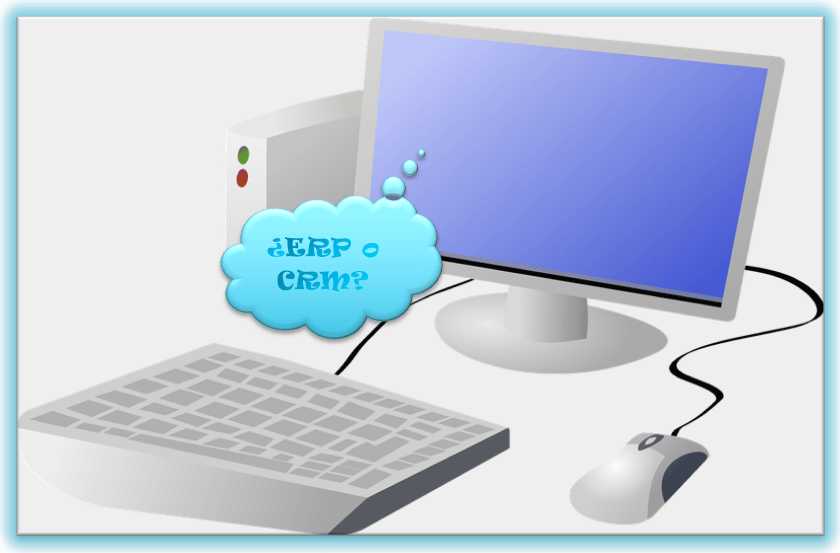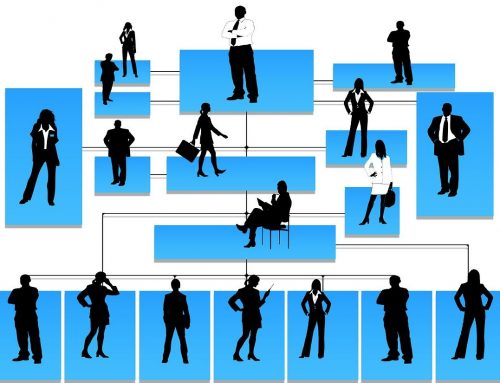Both are systems focused on managing different tasks in a company. But what administers each of these solutions?
Adequate information management in the business world can make the difference between success and failure. When it comes to choosing the system that best suits our needs in SMEs, sometimes these two concepts are not correctly differentiated.
Contenido
ERP and CRM Definition
Both are software solutions, generally compatible with each other or that can be integrated. Therefore choosing one of the two options does not imply excluding the other solution.
ERP (Enterprise Resource Planning)
It is an enterprise resource planning system. It is used in companies to control production, logistics, accounting, stock and inventories, distribution and personnel. It can have modules of HR (payroll), accounting, invoicing, finance and logistics among others.
It is usually a complex software that is installed in SMEs and requires greater investment in both the economic aspect, personnel and implementation time.
CRM (Customer Relationship Management)
This is a system focused on managing the relationship with our customers. Its main objective is to have access at all times to customer data and information that we have in the company. This will allow us to design the best commercial strategies to increase sales.
Advantages of ERP and CRM
Both solutions provide great advantages in the management of the business area for which they have been created.
Smaller companies are likely to have enough with the use of a CRM to manage their sales and customer relationships. Others, on the other hand, will need a program that manages all the more administrative part of the company. It will then be necessary to contract an ERP.
Some companies choose to hire only one, others opt for both. Ideally, if you hire an ERP and a CRM is to integrate them so that they talk to each other and minimize the processes and administrative work.
The work of each solution is complementary and makes it possible to speed up all the administrative processes derived from the more administrative function of the company. And, as we commented in the previous paragraph, despite being used for different areas of the development of the activity of a company, that they talk to each other is much more effective for the daily work of workers.
These two solutions allow companies to have a computer support from where to manage all tasks. All workers will have access to these tools for the development of the activity. This will avoid duplication of tasks and better communication between departments.
And in particular, to the advantages that can be found in the use of a software or CRM tool, we can talk about being able to take a better management of all customer data. Automation of sales processes, creation of databases with customer information that can be analyzed with different objectives and even to define different business strategies.
ERP and CRM for SMBs and freelancers
There are many options on the market: some are software that are installed on corporate devices (pc, tablets). Others are online portals that require password and internet connection to access. There are also some solutions made strictly to measure that give total coverage to all the needs to cover each functionality in that company.
However, SMEs usually opt for already developed solutions, which they can customize to a greater or lesser extent to adapt to their needs, even if they are not 100% designed for them. SMEs tend to opt for these options as they are less expensive than custom applications.
Normally an ERP consists of different modules that a company can contract. In most cases SMEs will not take full advantage of the potential of these solutions.
A CRM is adapted to smaller companies as it focuses more on sales and customer management. Therefore, a CRM tool is cheaper, easier and more agile to install as it does not cover a large number of areas and users in the company. Whereas in an ERP the process of implantation and implementation is more complex and costly. It usually takes longer in time and the costs per license, software or installation are much higher.
Conclusions: ERP and CRM
It does not mean that SMEs do not contract or should not contract an ERP, but it is true that normally they will choose to emphasize and improve the tools that concern the relationship with customers and sales than management tools. Therefore, they resort to CRM solutions for the management of their tasks.
As a conclusion to this topic we must say that different factors such as needs and costs (both economic and time and personal) must be analyzed to see which system or systems, or the integration of both, will be more compatible.
Our CRM Online is compatible with the integration of any ERP that a company wants to hire or already has.






Leave A Comment